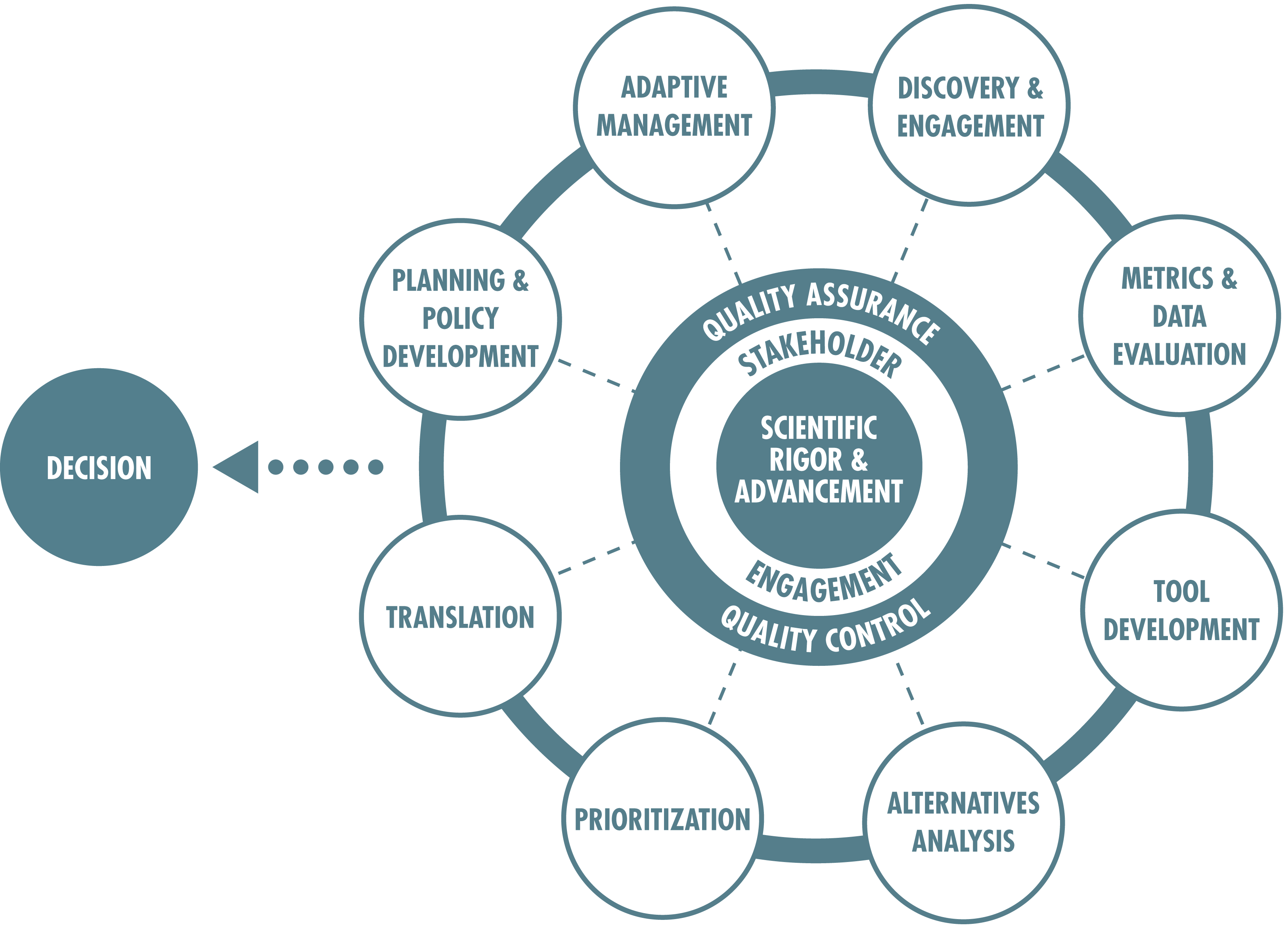How We Work
Using an integrated approach, the Institute provides a suite of capabilities from large-scale plans and decision-support tools to targeted research and technical reviews. The Institute’s strength is derived from our diverse researchers and their integrated approach to problem definition, alternatives analysis, and decision support outputs. Collaboration across sectors and disciplines allows the Institute to provide a holistic approach to address the most complicated environmental and societal challenges.
Community-Driven, Science-Based Decision Support
In the face of unprecedented environmental challenges, coastal and deltaic communities are tasked with making difficult decisions for their future. The Water Institute uses structured decision making processes to help governmental agencies and communities identify and prioritize areas of value and guide participants toward suites of options in order to address the challenges these areas of value face. You can read The Water Institute's Scientific Integrity Policy here.
In addition, The Water Institute engages communities in participatory modeling to allow residents to better tailor ideas for coastal restoration and protection into concrete plans for the future. It can sometimes be difficult to incorporate local knowledge into numerical modeling efforts that largely determine which projects move forward and where they are built. The Water Institute team works to bridge this gap through community input that can be directly translated into more quantitative methods like numerical modeling.
The Water Institute Methodology
The Water Institute methodology employs applied science to assist communities to make informed decisions and plan for an uncertain future. Our goal is to fully inform and advise decisionmakers in evaluating alternatives grounded in science, research, and community priorities.
Explore the methodology wheel to learn more.
